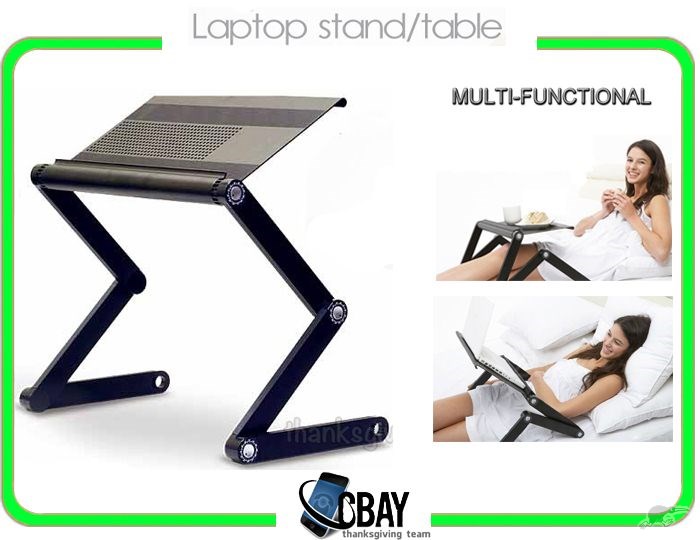Three years ago almost to the day, I was being wheeled out of Nelson hospital. A few times recently, I’ve caught myself saying “fuck, I wish I knew that before now.” So, here’s the top ten things I’ve learned since I became chronically ill and disabled.
This list is a mixture of practical advice for people who are chronically ill or have disabilities, and some of the things I’ve learned about myself and life over the past three years. It’s neither negative nor positive. The main reason I’m writing it is because these are all the things I really wish someone had said to me when I left hospital that day, and so this might be of use to others.

Illustration of me, by Hayley Heartbreak. This is absolutely not how I see myself, but it makes me feel strong, and grateful to my friends.
10. You need to be your own health advocate.
This is a pretty brutal truth really. It’s not easy to advocate for yourself when you’re vulnerable. But it’s a vital skill.
- Do not trust doctors to know everything about your conditions, your symptoms, or your medication. They don’t. When you’re in a room with a doctor, you shouldn’t feel as if they’re in charge and you’re not allowed to ask questions.
- Always follow up. They may not have made the referrals or done the tests they said they were going to. If they haven’t, you might find you’re way down the waiting list. (This has happened to me numerous times, and it’s really frustrating. Just call them, or get someone to do it for you. Don’t wait then find out a month later they haven’t even done it yet.
- Ask to try different treatments. Don’t expect that they have offered you every option. If there’s something you’ve read about that you want to try, ask about it.
- Research every medication you’re put on. Don’t presume the doctor knows or has told you every single possible side effect or interaction. Be prepared and make informed decisions about what you’re putting in your body.
- Check your scripts before you leave, to make sure you have everything you need in the correct doses. Going back is time-consuming, expensive, and may just be too difficult for you.
- Always take someone with you. This might not be possible for every person all of the time, but if you can, take a support person to every appointment. They don’t need to say anything if you don’t want them to, but they can act as an extra set of ears, in case you miss something, forget something, or need to verify anything that was said.
9. Find out what health services are available in your town
– Ask, ask, ask. I have found out about numerous support services over the course of the last three years, none of which I knew existed. Many times, I stumbled upon them accidentally, or someone just mentioned them offhand. Some possible questions:
- Does your town have a Pain Clinic?
- Is there a hydrotherapy pool at your local hospital that you can use?
- Can you get physiotherapy through your hospital or GP?
- Is there free or low-cost transport for people with illnesses or disabilities? (Ie, we have the Red Cross van in Nelson).
- Is there any free or low-cost exercise programmes you could join if you wanted to? (We have the Green prescription in NZ).
8. Find out what financial support you’re eligible for
– Work and Income may not be proactive in letting you know what support is available. So read the list on their website, and when you go to an appointment, ask about specific benefits. This is another service where you A) Need to advocate for yourself, and B) Always take someone with you.
– Many people don’t know about the sorts of things they could use a Disability Allowance for. DAs can cover things like doctors’ fees, prescriptions, travel to appointments, alternative therapies like yoga, special food if you have food allergies, even heating. 
– You can also apply for a Disability Allowance if you’re working and not currently on a benefit.
– There can sometimes be some support from IRD. I applied for Financial Hardship when I first got sick, because I owed tax from when I was self-employed. They supported me on this.
– If there’s a Community Law office or a Citizens’ Advice Bureau in your town, they can often help with further places for support, and legal advice on your rights etc.
7. Medication: ask, ask, ask
I have tested so many different drugs and drug combinations over the past three years. But I made a bunch of mistakes. Most of them could have been avoided if I asked more questions, such as: What are the side effects? What are the likely outcomes? and; Are there other options?
For example, the antibiotics I was given way back before I was admitted to hospital, caused my admittance. My system couldn’t cope, and I got a C. Diff infection, along with Toxic Megacolon (both of which carry a high risk of fatality) on top of the infection I was being treated for. I had had no idea that this was a possibility, however small.
To be fair, it’s extremely hard to ask what you don’t know. Back then, there’s no way I would have known to ask whether antibiotics could put me in hospital. I didn’t know how fragile my stupid body was/is, and I didn’t know anything about how antibiotics work. Now, I know both those things, and I will ask for and research every possible side effect and impact of any new prescription.
It can be useful for asks for ways in which side effects can be avoided. For example, your medication may come in other delivery mechanisms. After three years of being on and off the steroid Prednisone, which is one of the few things that helps my symptoms, I just got told that you can get it as an injection. And if you have the injection, you don’t get a lot of the side effects that make the oral format only a short-term option. So I can now get this injection every two or three months, and I get all the benefits with A) the side effects of the pill, and B) having to stop taking it, which sucks because of the withdrawal and return of my symptoms.
6. Find out what’s available to improve your physical environment
There is a plethora of products available for people with chronic illnesses and disabilities. Here’s some of the things I’ve been lucky enough to be able to invest in.
- I have a tablemate-type desk that I can adjust and use anywhere – in bed, on the couch, outside. It’s light and it means I can sit whichever way and whereever is most comfortable.
- I got a yoga/swiss ball for $10 from the Warehouse which is often more
comfortable to sit on, and helps exercise my core and back muscles, which will help stop the progression of my disease. I have voice recognition software. I don’t use it as often as I should, but it means I can still write if I’m in too much pain to use my laptop.
– SLEEPING
- I was extremely, extremely lucky, (I still cannot believe this), that a bunch of amazing people fundraised the means for me to buy a pillow top mattress. It is probably the best thing I own.
-DAILY COMFORT
- Hot water bottles, heat packs, ice packs.
- Memory foam cushions.
- I just got a heated blanket from Kmart for $55 and it’s amazing. It’s like a normal fleece throw but it plugs in. Omg.
- Bottle/jar opener things. Do not be ashamed. Get them.
- An e-reader. Again, I was lucky enough to be gifted one. It is so much easier and lighter to handle than a book, and I can get almost any book I want without leaving the house.
5. Don’t let anyone shame you for your choices
This is your body, and your life. Everyone – and I do mean everyone – will have an opinion or an idea for how you can be healthier. Often, they are genuinely trying to be helpful. But their intentions don’t mean that you won’t feel like what you’re already doing to help yourself isn’t enough.
I’m here to tell you it is.
You don’t have to try every new product or idea or medication that someone offers you, whether they’re a doctor or a naturopath or your mother’s uncle’s best friend. You don’t owe them anything. You do not have to feel bad for nodding politely, and going on your way.
This is your body. You know it best, and you know how you want to manage your pain or illness or disability. Unless what you’re doing has direct impact on someone else’s quality of life, and you could make a change that positively impacts them and does not negatively impact you (and even then this is a real grey area) – then this is entirely up to you.
Do not let anyone tell you you’re not trying hard enough because you haven’t tried *everything* or you don’t want to try it their way. That’s just bullshit.
4. Mental health and physical health are not separate entities
This may seem really basic and obvious, but I grappled with it for a long time. Did my depression cause my symptoms, or did my symptoms cause my depression? How could I manage both of them?
 The answer to management, for me, lies in two things: awareness – and access to professional help.
The answer to management, for me, lies in two things: awareness – and access to professional help.
I need to be aware of how my body affects my brain, and vice versa. If I know that a bad pain day will probably also mean a bad brain day, I can do what small things I can to mitigate that. It kind of doesn’t matter which one comes first, in some ways. Just that they come together, which makes complete sense.
I am lucky enough to have access to a number of professionals who understand the connections – a GP, a rheumatologist, a counsellor, and a physiotherapist and a psyhotherapist if I need them.
3. The grief cycle is a cycle
Whether you’re like me and you got suddenly sick, or whether you’ve had a disability your whole life, you may experience grief about it. And the “stages” of grief are not, unfortunately, a tidy little narrative. But it can be really useful to identify them as they happen – and to let them happen.
I find that there’s often an expectation that I will be positive about what’s happened to me. Make the best of it, etc. And a lot of the time, that is what I try and do.
But I am going to experience shock. I am going to experience denial. I am going to experience anger. And, sometimes, I experience acceptance.
Those emotional states happen over and over, in any order, and sometimes all at once or in rapid succession. I grieve for my old
life. I grieve for all the things I lost – my job, the future I planned. I get fucked off that this basically happened to me because of bad luck and a genetic lottery. I get fucked off that I can’t do even a tenth of what I used to be able to do, and what I want to do now. I get terribly, terribly sad. I have days where I attempt to pretend that I’m completely healthy (and I pay for it dearly). I have moments where I can’t process how different my life is now or how I got here.
The times I experience acceptance feel amazing. It’s not like I stop fighting or trying to be more well. But I accept that there’s new parameters and I accept what I can achieve. I feel grateful for what I’ve learned, and for who I have in my life.
This is never false positivity. It is never gratitude that I got sick. It is never triumph or joy.
But it is peaceful and quietly optimistic.
2. Build a support network.
This is so, so important. Hopefully, you already have friends and family who can be there for you in physical and emotional ways. But the most important thing for me has been finding friends who understand.
My friends have literally saved my life. No, I’m not exaggerating. If I didn’t have them, there’s no way I would have made it this far.
Many of these friends are people I knew before I was sick, and many of them are people I have met since, almost exclusively through the power of the internet.
One of the bonuses of the internet, along with it being a way I can more easily socialise and get and give support, is that I can meet people who also have chronic illnesses and/or disabilities. And so, I’ve been able to talk to people who get it, without me having to explain what this existence is like. That is inexplicably emotionally valuable. Plus, they can help in practical ways, like sharing info on new products they’ve bought or medications they’re trying or services they’ve discovered.
Don’t forget though – friends are not professionals, and it’s not really fair to expect them to be. That’s what a support network is. Friends, family, doctors, therapists, anyone else you need. A carefully woven web that won’t let you slip through the cracks.
And Number One: Your identity is who you are, not what you do.
This is hypocritical, because I haven’t learned this yet, I just know I should. And I’m trying.
My illness restricted so much of what I could do, and what I could do was who I was. My job was never just a job to me, it was my identity. Giving that up ruined me for a long time, and still does.
In Elliot Wake’s Camgirl, the main character loses the use of one arm – the arm she uses to draw. She’s devastated and furious with everything. Her girlfriend leads her in the forest, gets her to close her eyes, and asks her to describe what’s around them. She does so, with incredibly rich and detailed imagery. And her girlfriend says to her something along the lines of: “See? You’re still an artist, even if you never draw again.”
Who I am is not predicated on my ability to do anything. I’m trying to teach myself that me, just me as I am, is ok. I don’t have to achieve all the things to make myself worthwhile. It’s a really, really tough lesson.
*DEEP BREATH* So. This is by no means the full list of everything I have learned and am still learning. I could pretty much go on forever, especially about the emotional and social impacts of illness.
Everyone experiences these things differently. I hope that some of what I’ve said is even a little bit useful.
And when all else fails, look at pictures of cats. Or bears. Or racoons. Or dogs, I guess, if you must. (They should be pugs though. Fight me).
FEEDBACK FROM OTHERS
I’ve had lots of feedback on this post, which is great. There’s a few things they’ve added which could be really useful.
1. Learning to ask for help. I’ve written about this before. It’s very hard, and I don’t know that it’s something I’ll ever be good at. But obviously, it’s important. You need to know when to ask for help, and be ok with accepting it.
2. Look to see if there’s an beneficiary advocates in your area. The Beneficiaries’ Union website might help.
3. When you fill a new script, check with the pharmacist about any medication side effects or interactions. Pharmacists often have more information than doctors do.
See the comments below for more.




This is gold, pure gold, and I recently found out that w qualify for cheap taxi rides, Arthritis foundation can actually set this up for us! under 20.00 its half price and over its 10% off. Keep learning. 🙂
Thank you! I do remember being told about this, but I’d forgotten. I should use that.
Hopefully you’ve already been told about this, but just in case – There’s another steroid option too, along the injection route, IV steroids. I used to get a 3 day course as an outpatient. I have AS too and I haaaaaaaated oral prednisone for the side effects, but did well with the IV version every 6-12 months for quite a few years with minimal side effects (before it stopped working for me!) Just something to ask your Rheumatologist about if they haven’t mentioned it already 🙂
Thanks Angela. I’d read about IV steroids but again it’s not something the doctors have mentioned. I’ll definitely look into that, thank you!
very helpful – getting an idea i might have “bird-fancier’s lung” – not funny at aall. always have been myself – some doctors have made mistakes… at the moment i’ve lost my voice. Need info and support.
So much this!
I wish I had been able to put it this coherently after my first major CFS episode in 2002.
Things get better, it relapses, it gets worse, it improves, that’s the merry-go-round of my life.
Various relatives never got a handle on the complex way in which my immune system failed. Too bad, I can live without their ignorant, bigoted input.
I still see myself as the person who got a BA, retrained in feminism, and has had a lot of ill-health & not a lot of employment since 2002; my qualifications validate my assertion that I am a writer. I write & publish when I can, I research when I can, & I do as much as humanly possible while I have ‘good years’.
All of which gets me in trouble with WINZ, because they can’t understand the periodic remissions & relapses in my condition.
I’m better qualified than most of the case managers I see about my Invalid’s Benefit. They seem to think that this means I should be employed, ipso facto because they are employed.
Most of them haven’t worked out that only the lowest qualified staff kept their jobs after the Bennett purges at WINZ a few years ago, so there is literally no-one with enough nous to counter any really stupid policy being hammered in from above.
This means that every six months, I have to defend my medication schedule (CFS, allergies, asthma, thyroid & adrenal insufficiencies) to someone who doesn’t have the intellectual capacity to go find a dictionary & look up the words they don’t understand. Like, ‘permanent’.
None of them understand auto-immune syndromes.
I have been trained academically in submission-writing & report-producing. This has been very handy, as I have written one full Ministerial submission over failures at WINZ Willis St, Wellington (upheld; Feb 2010) and one Regional MSD submission over failures at WINZ Hamilton East, ongoing (I have blacklisted that office myself, while the complaint is ongoing, and only use the central Hamilton office to hand in paperwork at present.)
I don’t drive; I have cognitive symptoms around left-right confusion that make driving hazardous. These symptoms also sometimes impact my ability to type, affecting my written output (not currently happening, it comes & goes).
I still travel, but in a much more consciously careful way, double-checking public transport availability in any place I’m going to. Flying from Hamilton is easier to do by taking a bus to Auckland airport & leaving from there. PT in the Waikato is a joke.
I nearly made it to Nelson this summer, Sarah. But getting a bus connection from Dunedin, where I was researching & staying with friends, to Nelson via Christchurch was so complicated that I gave up, & missed an opportunity to go to a policy conference run by the Green Party that I had intended to get to. It literally can’t be done as a same-day trip, the buses can’t be dovetailed. Flying was too expensive, by the time I worked out the bus clash.
Life is generally more complicated, with occasional perks – last year I returned to uni to study public policy, and as a study aid bought a small tablet with my course-related costs.
It has literally been life-changing, and you can’t be grateful enough for technical fixes like that. No shoulder pain from lugging around a laptop, just a lightweight object that I have carried around the country for three months while back-packing, and completely suitable for copying documents, photographing artefacts, etc, as I rummaged in several Dunedin archives.
14 years on from my initial collapse & diagnosis, I am a very different person to the projection of my future I had envisaged. Without full-time employment, I am definitely one of the precariate, over-educated & under-employed.
There are spaces in society where I am accepted & comfortable, so I mostly do vollie work in those networks & keep up with affinity circles nationwide that are my support/friend networks.
Acceptance of where I’m at, what I can & can’t get away with, has helped me to cope. There are sometimes days of rage or anguish, but mostly I cope. Splashes of joy, hours of fun, lighten the months & my health is usually better in summer – damp seems to get to my lungs.
“Do what works for you” would be the slogan I live under; I’m constantly astounded by the resilience of others, by the vast variety of coping strategies we come up with to get by.
Keep writing, Sarah – all of us need to keep doing whatever we’re best at, and you are truly great at this!
Pingback: Shortcuts: Tips and Tricks for Spoonies | Writehanded
Heya, just wanted to say thanks and you write so well. I have some mental/physical difficulties for years and have a hard WINZ appt in a couple days and have been looking for sanity and understanding on the net… found you! And you are NZ based. I struggle to write and express myself so I am very worried about managing my behaviour at the upcoming appointment. I do have a support person but also reading what you have written is helping me to keep moving forward and not decompensate. Many Thanks and I hope you are as well as possible. Please keep writing.
Hello! First of all, I am so sorry you are having such a rough time, both with your health and with WINZ. They are very intimidating. I am so glad you have a support person to go with you, and I hope the appointment goes as well as it can do and you get everything you are entitled to.
Secondly, thank you so, so much for leaving me this message. Sometimes I feel like my writing isn’t helpful and I’m just shouting into the void. So it means a lot to me when people let me know that it actually is helpful for them in some way. That really helps me to keep going and stay committed to the reasons I even started Writehanded. I can promise you I won’t stop writing!
Please come back if there’s anything specific I might be able to help you with.
Warm regards
Sarah